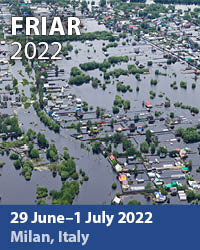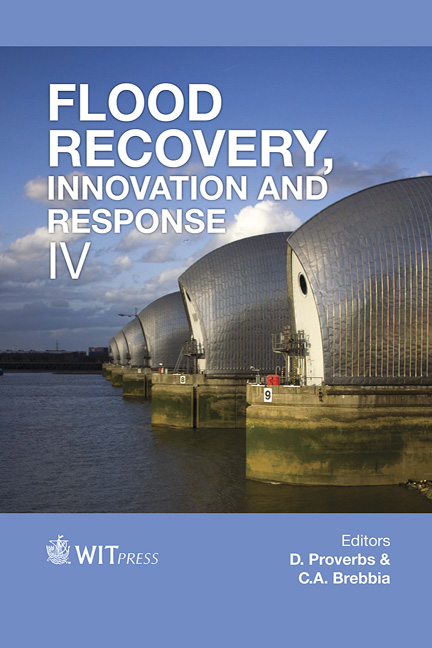The Long-term Health Impacts Of Repeated Flood Events
Price
Free (open access)
Transaction
Volume
184
Pages
12
Page Range
201 - 212
Published
2014
Size
299 kb
Paper DOI
10.2495/FRIAR140171
Copyright
WIT Press
Author(s)
J. Stephenson, M. Vaganay, R. Cameron & P. Joseph
Abstract
During the past 30 years, floods have resulted in over 200,000 fatalities and affected more than 2.8 billion others worldwide. Flood victims are vulnerable to long-term physical and psychological health effects, which persist for an undefined time period in the aftermath of a flood event. Following a flood event, secondary stressors, which are indirectly related to the event, can potentially prolong and intensify the health impacts on affected individuals and communities. These secondary stressors consist of economic stressors, including loss of income, but also social stressors such as isolation due to prolonged flooding. A significant gap in the research to date is in relation to repeated flooding and its impact on the extent to which individuals are affected by these secondary stressors. This review examined studies focusing on repeated flooding, concentrating on the secondary stressors resulting from repeated flood events. It also considered the awareness, preparedness and resilience of the study populations in order to determine the potential for these communities to be impacted by secondary stressors. This review indicated that both rural and urban communities in developed and developing countries are significantly affected by economic, social and psychological secondary stressors. The majority of communities do have a basic awareness of flood risk; however, many residents do not take flood risk seriously and thus take little preventative action. Community resilience was higher in urban and rural areas in developing countries, but also in rural areas in developed countries. Future work should take into consideration the secondary stressors that affect different communities and how to minimise their impact in order to increase resilience.
Keywords
flooding, repeated flooding, health, secondary stressors, resilience, awareness, preparedness, urban, rural.





